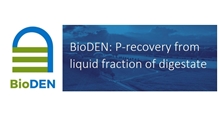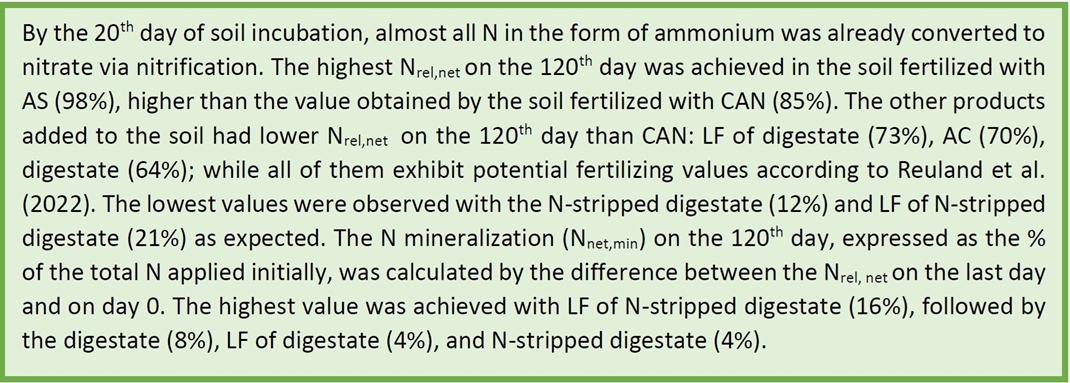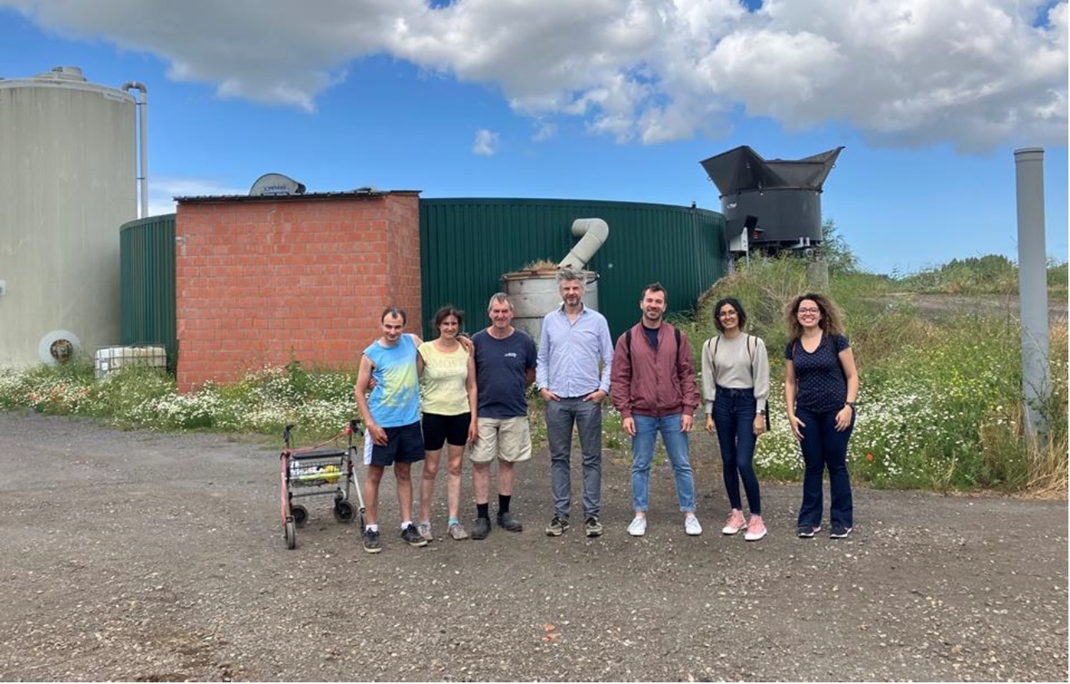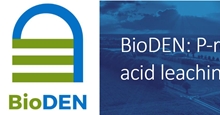
The main innovation goal of the BioDEN project is to realise an extensive valorisation of the nitrogen and phosphorus-rich digestate originating from anaerobic digestion into existing and new bio-based fertilisers. In this manner BioDEN creates an opportunity to realise a closed nutrient cycle and offers a possible escape from the high artificial fertiliser prices. More specifically, techniques such as (vacuum)stripping of ammonia in combination with acid scrubbing, and phosphorus leaching are tested in both lab- and industrial settings.

The BioDEN project kicked off early January 2022 and spans 28 months. It is a collaboration between Biogas-E, KU Leuven, UGent, Marmara University, VCM and Ostim Enerjik. This article provides an update on the work undertaken in the meantime.
P-recovery from digestate using alternative acids
The recovery of phosphorus (P) from the solid fraction of digestate (SFD) via acid leaching is conventionally done with sulfuric acid; while more sustainable and environmental-friendly alternatives (e.g., organic acids, waste acids from industry) have not been investigated thoroughly as potential P-leaching agents. Previously, UGent Re-Source Lab tested the leaching performance of citric acid and compared it to that of sulfuric acid. The results of these tests can be consulted in the form of clear factsheet.
Recently, more alternative leaching agents such as recovered scrubbing waters from a stripping/scrubbing process (ammonium sulfate (AS) and ammonium citrate (AC)) from the KU Leuven research group and a waste acid from the chemical industry (47% sulfuric acid 4% hydrogen peroxide) were investigated as alternatives to sulfuric acid.

N-release and mineralization dynamics in soil
The potential fertilizing products obtained from the stripping/scrubbing tests performed by KU Leuven research group and Re-Source Lab are as follows: two digestates (digestate and N-stripped digestate), liquid fractions (LF) of these digestates after separation via centrifuge, and two scrubbing waters (AS and AC). The Nitrogen (N) release and mineralization dynamics of these RENURE (REcovered Nitrogen from maNURE) products in soil were determined by UGent Re-Source Lab through soil incubation tests in the absence of plants for 120 days. The experiments were conducted on the N-fertilizing products generated in BioDEN in comparison to a synthetic fertilizer (calcium ammonium nitrate (CAN)) via measuring plant-available mineral N in fertilized soils. Although CO2-scrubbing was also tested, the resulting scrubbing water ammonium bicarbonate was not rich enough in N to be used as a fertilizer.

For more information, contact: cagri.akyol@ugent.be
On the agenda

Figure 1: Ivaco plant where full scale P-leaching tests will be performed using waste H2SO4.
Pilot-scale P-recovery from digestate will be tested and validated at Ivaco (Figure 1) using the same waste acid already tested at lab-scale. Additionally, pot trials will be performed to test the agronomic performance of P-fertilizing products on ryegrass (Lolium perenne) and the nutrient-poor product resulting after N-stripping and P-leaching tests will be assessed for its soil-enhancing properties.
KU Leuven will process the data resulting from the tests with stripping-scrubbing linked to two full-scale digesters (one fed with manure and the other with mixed organic waste). Subsequently, the collected data will be applied by VCM and Biogas-E to carry out an economic, technological and ecological study of the different recovery options. Marmara University continues working on a lab-scale trial using Fe-modified biochar as phosphate adsorbents. Two different biochar modification methods are being investigated. In addition, the recovery of phosphorus from the liquid fraction of the digestate in the form of struvite is being tested in a pilot-scale crystalliser. Various test conditions will be investigated and optimised.
Would you like more information about the BioDEN project in general or would you like to follow the project more closely? Contact: info@biogas-e.be
With the support of:

